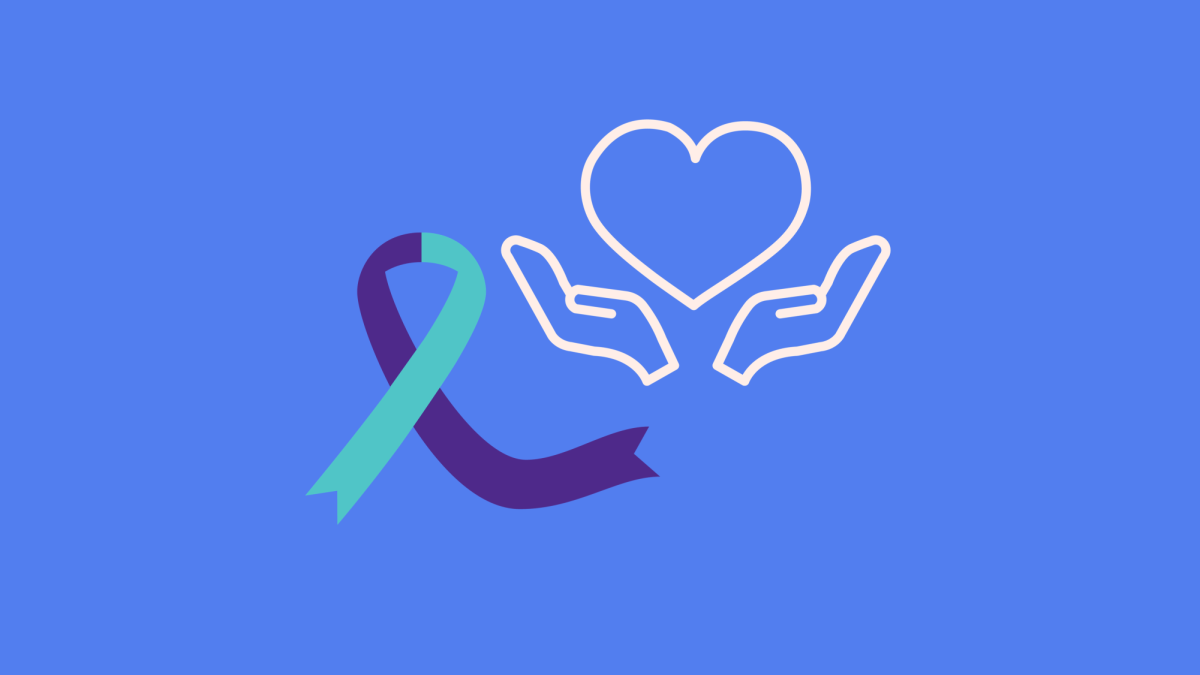All September, mental health advocates, survivors and community members are joining together to promote suicide prevention awareness month.
Behind car accidents, suicide is the second leading cause of death for college aged students, according to the National Institute of Mental Health.
For many, adjusting to the new environment, responsibilities and academic pressures of college can be overwhelming. This may lead to larger mental health concerns.
Freshman Olivia Frames stressed the importance of speaking out on suicide awareness.
“Suicide alone isn’t a mental illness, it is a side effect of a mental illness,” Frames said.
After losing her father to suicide at six years old, Frames has made an effort to speak out on the issue.
“Anything can happen, and that’s why I feel like these resources should be talked about more and people should be educated more about these mental illnesses,” Frames said.
Although more women reportedly suffer depression every year than men, suicide is ranked as a leading cause of death among men in America, according to the Sage Neuroscience Center.
“As a man there are so many stigmas around mental health. We are looked at as the anchors of the family and are often depicted in ways that a man showing emotion of any kind as weak,” WKU alum Wesley Williams said.
WKU alum Madeline Williams explained another misconception being the idea that one treatment type can work for all individuals.
“A common misconception around mental health and suicide awareness is that there is a one size fits all solution,” Williams said.
At 11 years old, sophomore Kelsie Mieczkowski started her struggle with mental health.
“Suffering from it myself it’s easier to understand someone else who is mentally down or suicidal,” Mieczkowski said. “People make mental health out to be a bad thing like something is wrong with you, but It’s important to reach out because you never know how deep and dark you will get in your mental health.”
The stigma behind reaching out about mental health comes from lack of understanding, according to the American Psychiatric Association. Some may face the fear that struggles with mental health come with a negative connotation.
“People are usually never ridiculed for taking a sick day, but if the case happens to be that they’re struggling with their mental health, the expectation is then different,” Gabe Heckerman, a senior biology major and campus chair for the WKU American Foundation for Suicide Prevention, said.
Those with mental illness may wait to seek treatment due to a variety of factors, such as societal pressure, lack of time or high costs.
WKU has many resources on campus such as free counseling for students to assess, treat, and intervene when needed. They also offer a “Question, Persuade, Refer” (QPR) training which helps people understand suicide, so they feel more comfortable knowing steps to take to discourage someone from an attempt.
“Raising awareness for suicide has become a passion of mine because it has directly affected myself and those I love. To me, this is a personal fight against the suicide epidemic,” Heckerman said. “There is always someone willing and ready to listen to your story. If you are unsure who that person is, then seek out resources like the counseling center on campus.”
He said the 988 hotline is also an option for those that are struggling, and that raising awareness for suicide prevention is essential.
“Raising awareness, spreading word of resources, and simply being a kind and compassionate peer can go a long way in making a difference.” Heckerman said.
News reporter Emmy Roth can be reached at emily.roth843@topper.wku.edu.




